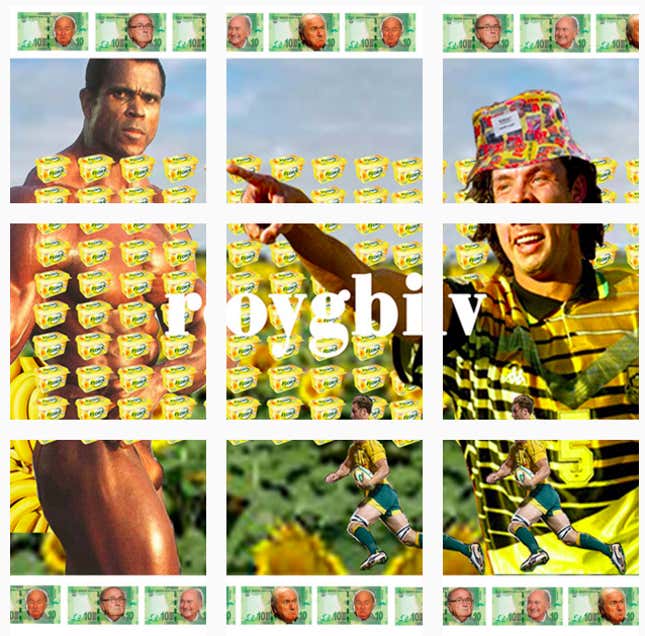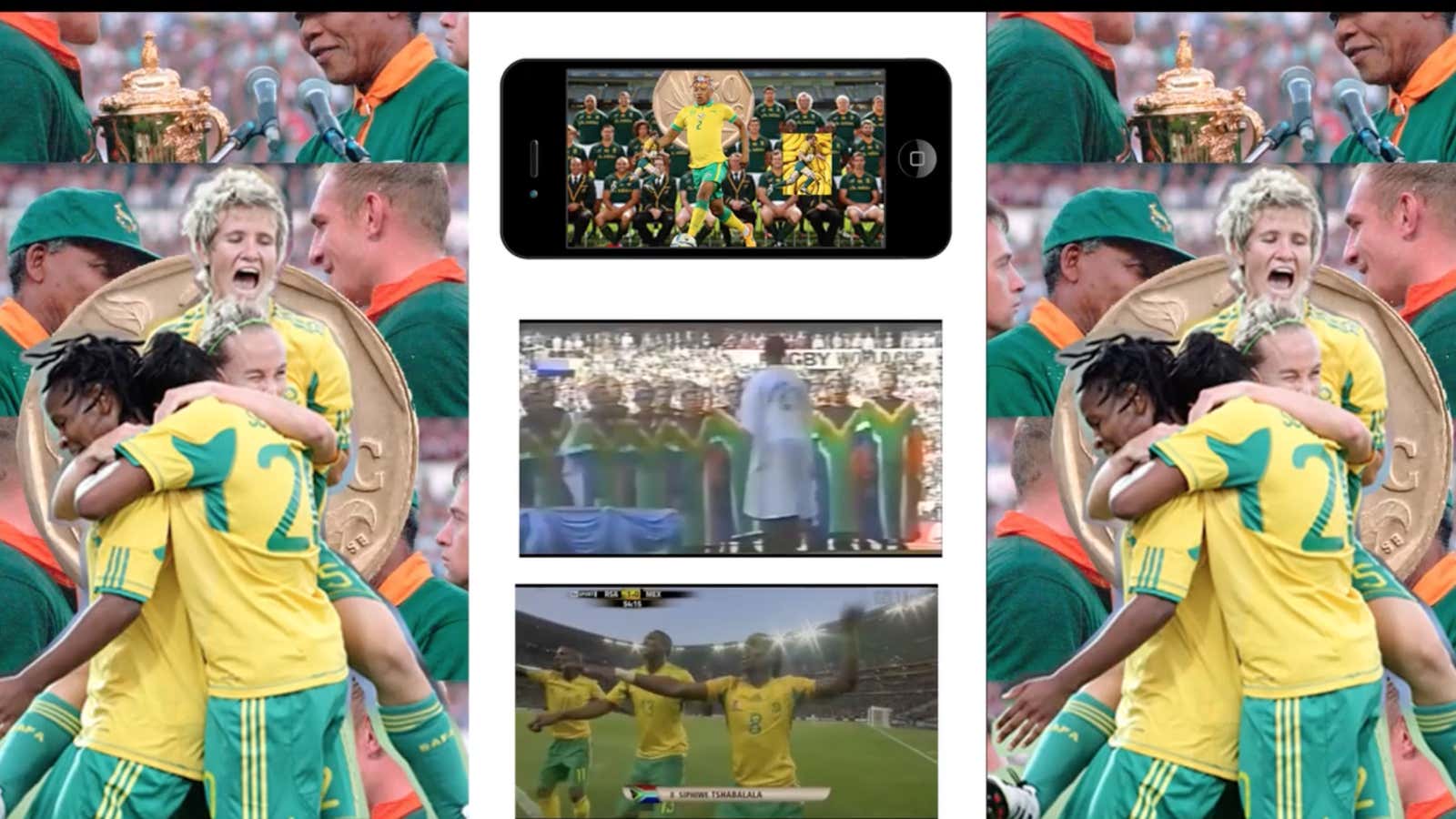Since democratic elections officially signaled the end of apartheid in 1994, South Africa has taken pride in describing itself as a ‘Rainbow Nation,’ filled with people of diverse races, cultures and sexualities, united through immense adversity. The term was first alluded to by human rights activist Archbishop Desmond Tutu, whose optimism in the country has been unflappable in the face of the challenges facing the country, including stubborn unemployment, crime, corruption, poverty and inequality.

For many, this post-apartheid dream has taken a backseat to the reality of experiencing those hardships firsthand. These frustrations have spurred people to protest on the country’s streets and, most recently, university campuses. Vandalism of a statue of Cecil Rhodes, a British colonizer, at the University of Cape Town last year, sparked a movement that would spread nationwide, eventually coalescing over tuition fee hikes under the banner #FeesMustFall.
Digital artist Tiger Maremela wanted to try and contribute to this activism through art, producing a colorful, striking collage series that examines the South African narrative of post-apartheid unity.
“The rainbow nation is a very smart marketing strategy and it came right after all these tragedies had happened to the country,” said Maremela, who also works in digital marketing. “All of a sudden we had to present this idea that we were united, we had forgiven each other, everything was okay.”
That was a lot of baggage for “Rainbow Nation babies,” as the 22-year-old calls them, or the so-called post-1994 “born-frees.” This generation has found itself growing up in a society where “nobody is actively trying to talk about [these tensions]; find solutions, engage,” Maremela said. “Instead we’re still trying to push a very post-racial society.”
Maremela decided to try unpack the aesthetics and politics of the Rainbow Nation ideal by asking what it meant to be a part of it, and who benefited most from that ideal. The result is an eight-part collage series called roygbiv, a common acronym for the colors of the rainbow.
Maremela’s collages juxtapose images and figures that are iconic and familiar to South Africans—branded household goods like detergent and cooking oil, and photos of politicians and celebrities—with images of the marginalized, such as female anti-apartheid protest leaders.
The artist used Instagram to showcase snippets of work which, when viewed using the tool’s grid-like layout, created a whole image. The series was later translated to video, adding clips and music. Each chapter of the eight-part series looks at a different topic impacting South Africa and in some cases, other African countries, from land redistribution and black subcultures to masculinity and the impact of modernization on indigenous communities and masculinity.
The young artist’s next work will look at the experience of being online from a black, queer and transgender perspective, “and the kind of conflict that may come about being an active internet user that has an identity that is marginalized.” Working in digital marketing often influences this work, Maremela said. “It’s impossible to separate the offline from the online, these two are so permeable and they influence each other a lot.”
Maremela hopes work like the roygbiv series will encourage South Africans to see the links between the different conversations going on in the country regarding race, gender and capitalism, for example.
In the past, the ‘Rainbow Nation’ narrative has, like a collage, been made up of strips of the “colorful and vibrant and happy parts of our story as a nation,” Maremela said. “There are some people whose stories are being hidden and torn away. Those are the stories that need to be amplified, and they are the ones whose issues need to be addressed, right now.”
Correction: An earlier version of this article misspelt Maremela’s last name. The article also initially used male pronouns and was altered in line with Maremela’s request not to be identified with any specific gender.
Update July 1: Two collages and a video originally published with this piece have been removed at the request of the artist.
